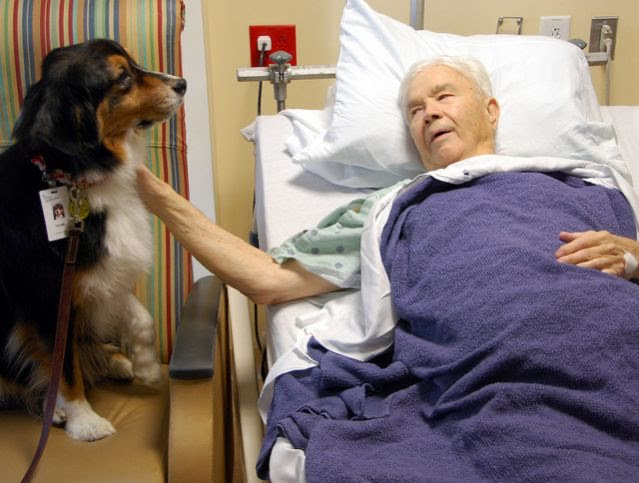While December is synonymous with the celebration of human connections, it can also be a daunting time for those who are ill or alone. Thanks to the success of therapeutic service animal programs worldwide, there is tremendous hope for those who need it most.

Pet Partners has been in business since 1977, pairing therapy animals with humans in time of need in an effort to relieve stress and improve the quality of their lives.
Pet Partners is one of the world’s largest animal-assisted intervention programs with thousands of registered teams handling multiple species, making more than 3 million human visits annually. The goal? To improve human health and well-being through the human-animal bond.
Studies have shown that animal interaction releases powerful hormones such as oxytocin and serotonin that help us relax and lower our blood pressure. Therapy animals can help improve patient satisfaction, energy levels, self-esteem, and mood, as well as decrease depression.
Research has additionally noted benefits to include increased motor skills and movement, improved social skills and verbal communication, decreased boredom, and a more positive outlook.*
Pet Partners began in 1977 after founders witnessed in their own practices and live the positive impact pets were having on their human clients’ health. The team of seven dedicated themselves to funding research in an effort to better understand the impact animals have on people’s lives.
Forty-five years later, Pet Partners is known worldwide for its multi-pronged approach of promoting the benefits of animal-assisted therapy, activities, and education. With coverage throughout the country, Pet Partners services patients in recovery, people with intellectual disabilities, seniors living with Alzheimer’s disease, students, veterans with PTSD, people who have experienced crisis events, and those approaching end of life.
With dogs making up 94% of the organization’s therapeutic services, other service animals include cats, horses, llamas, alpacas, rabbits, birds, pigs, and guinea pigs. If interested in registering a pet or as a handler with Pet Partners, please see: petpartners.org/volunteer/volunteer-with-pet-partners/
Sources:
- UCLA Health, Medical News Day, Mental Health America, and the National Center for Biotechnology Information.
Originally published on in the National Service Animals Monument Newsletter, republished with permission.
